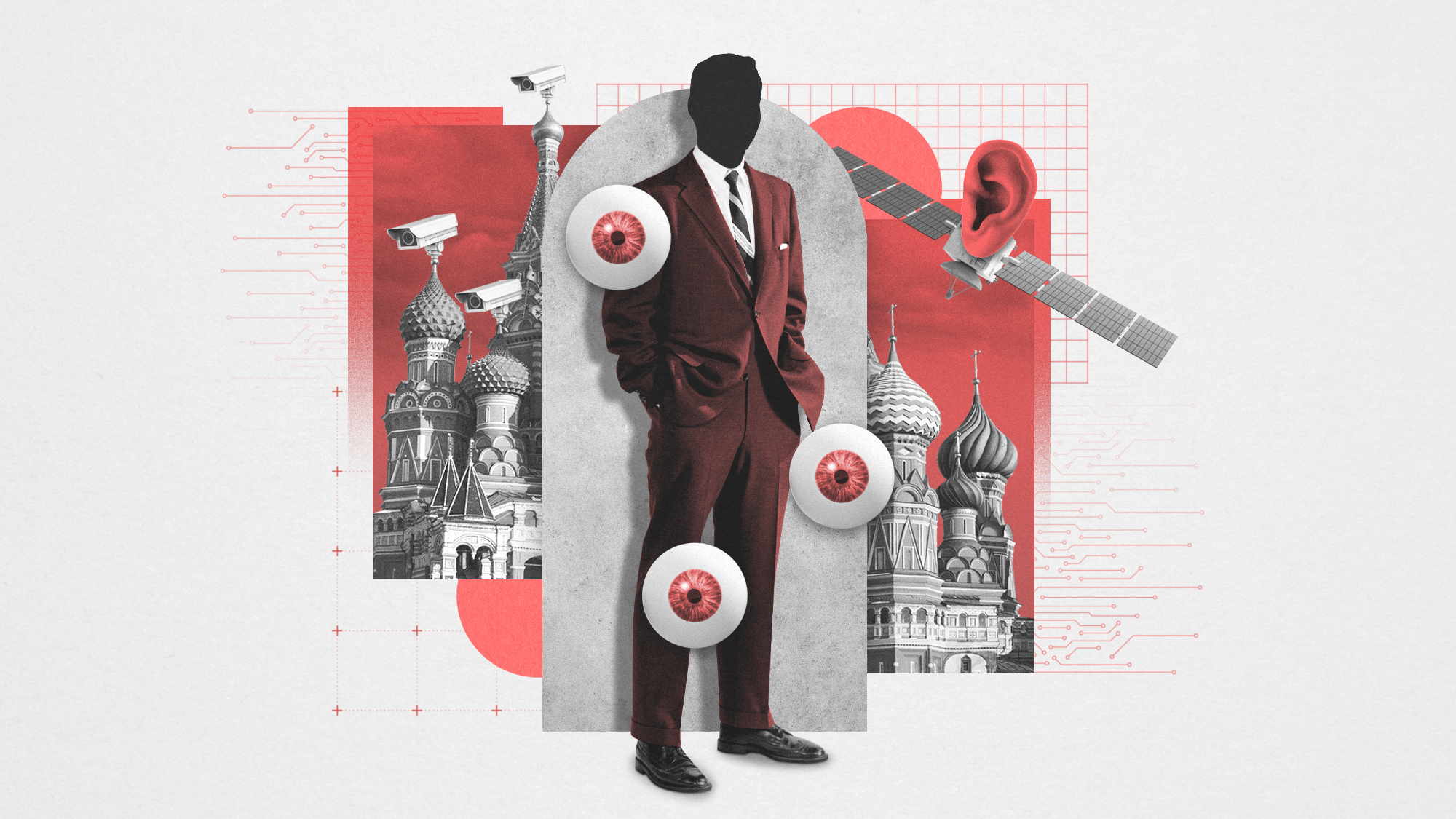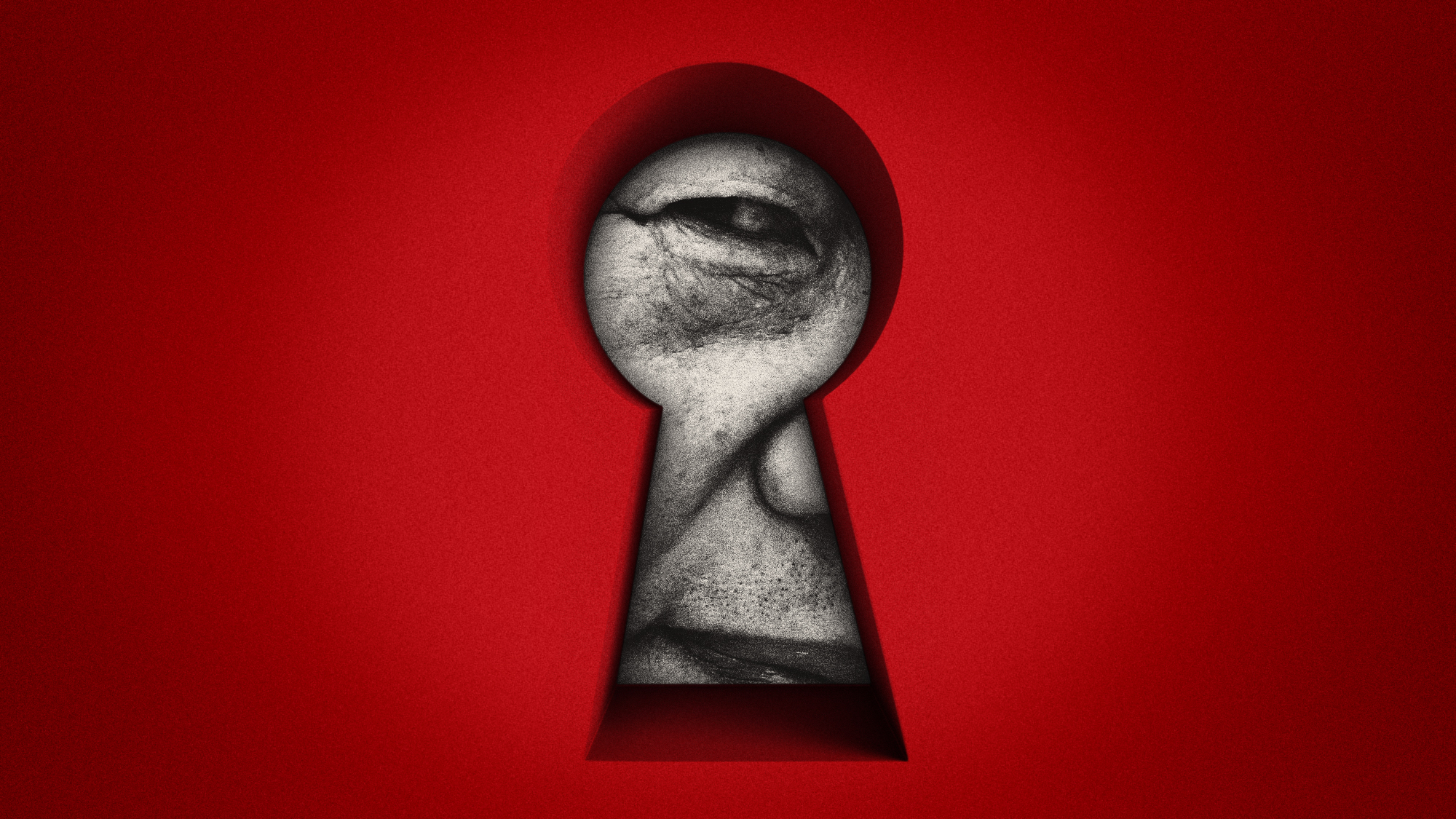How Russia trains its deep undercover spies
Moscow's elite 'illegal' sleeper agents pose as foreigners and live under false identities known as 'legends', often for decades

A free daily email with the biggest news stories of the day – and the best features from TheWeek.com
You are now subscribed
Your newsletter sign-up was successful
The Russian plane that landed in Moscow last week carried an "assortment of spies, assassins and criminals" – half of the biggest prisoner exchange between Russia and the US since the Cold War.
But the prisoner-exchange flight, greeted on the tarmac by Vladimir Putin, also carried two "wide-eyed and confused" children, said The Guardian. Sofia, 11, and Daniel, eight, were born in Argentina and then moved with their parents to a suburb of the Slovenian capital Ljubljana. The children spoke Spanish at home and studied English at an international school, while their mother ran an online art gallery.
The gallery though was a "front for Russian intelligence", said The New York Times. It was part of "an elaborate network of deep-cover sleeper spies" trained by Russia. The children had no idea that their parents, Maria Mayer and Ludwig Gisch, were Anna Dultseva and Artem Dultsev, caught in December 2022: one of the most high-profile cases of famed Russian "illegals" since the collapse of the Soviet Union.
The Week
Escape your echo chamber. Get the facts behind the news, plus analysis from multiple perspectives.

Sign up for The Week's Free Newsletters
From our morning news briefing to a weekly Good News Newsletter, get the best of The Week delivered directly to your inbox.
From our morning news briefing to a weekly Good News Newsletter, get the best of The Week delivered directly to your inbox.
What are 'illegal' sleeper spies?
Spies broadly fall into two categories. Most are "legals", sent to foreign embassies to work at diplomatic jobs while secretly gathering intelligence. So-called "illegals" are elite spies who live under false identities known as "legends" – sometimes for decades, like the Dultsevs.
Illegals spend years "infiltrating the target region, building complete false lives which enable them to move about freely", said The Daily Telegraph. It's "costly, time-consuming and fraught with risk". But the advantage of an illegal is that "they can go places where a Russian can't", said Gordon Corera, author of "Russians Among Us: Sleeper Cells, Ghost Stories and the Hunt for Putin's Agents".
It is "almost impossible for counterintelligence services to uncover illegals", John Sipher, formerly deputy director of the CIA's Russia operations, told The Guardian last year. It's "almost always a human source" that passes information from Western intelligence which allows illegals to be uncovered. The Dultsevs, for example, were arrested in December 2022 after a tip-off from a source in Britain.
Marjan Miklavcic, the former head of Slovenia's military intelligence, told The New York Times that sleeper agents were often planted with "no clear mission": a "hidden reserve force" that could be activated in a crisis. That makes them Russia's "most prized assets", said The Guardian.
A free daily email with the biggest news stories of the day – and the best features from TheWeek.com
How does Russia create and train them?
During the Spanish Civil War, Soviet agents stole passports from foreigners who had enlisted to fight Franco's fascist regime, and used these to create "deep cover" identities. Russia could be using the same tactics now, former FBI counterintelligence officer Kevin Riehle told Business Insider. Thousands of foreigners from all over the world have signed up to fight in Ukraine – both for Kyiv and for Russian mercenary groups.
Russian intelligence might also comb newspapers for death notices of children, and those identities can then be used to obtain passports for agents. But post-9/11 technology, such as biometric passports, has made it more difficult to fake identity papers. Traditionally illegals train for about six years – an "expensive and detailed process", said Business Insider. But one detail is "almost impossible to eliminate": accents.
The Dultsevs reportedly spoke perfect, largely accent-free Spanish. But US student Richard Murphy – later revealed to be Vladimir Guryev, and arrested for espionage in 2010 as part of the group that inspired "The Americans" – "looked like Boris Yeltsin and had a heavy Russian accent", his teacher told The New York Times.
What has changed in the past few years?
"The past few years were awful for Russian spies," said The Economist. The Russian Foreign Intelligence Service's presence in Europe was "eviscerated" after the beginning of the Ukraine war, with about 600 diplomats and officers – "legals" – expelled from embassies across the continent. In November 2022, the head of MI5 called the mass expulsion "the most significant strategic blow against Russian intelligence services in recent European history".
Several cases of illegals being uncovered last year have led experts to believe that Russia is "gearing up" its deep-cover programme, said Business Insider. They also believe that Russia has evolved "new techniques" and has turned to a new region of the world to obtain fake identities: South America. There, corruption is "rife" and the Kremlin can "count on the support of decades-old allies".
Putin, a former KGB foreign intelligence officer, has "thrown huge resources at this quite eccentric priority", said Calder Walton, the director of research for the Intelligence Project at Harvard's Kennedy School. He has a "real fetish" for illegals, Walton told The New York Times. He publicly praises Russia's "courageous" spies, characterising becoming an illegal as a patriotic act of self-sacrifice and heroism.
"Artem and Anna Dultsev have returned to Russia to a hero's welcome," said The Telegraph. "For their blameless children, however, the struggle to understand what has happened to them has only just begun."
Harriet Marsden is a senior staff writer and podcast panellist for The Week, covering world news and writing the weekly Global Digest newsletter. Before joining the site in 2023, she was a freelance journalist for seven years, working for The Guardian, The Times and The Independent among others, and regularly appearing on radio shows. In 2021, she was awarded the “journalist-at-large” fellowship by the Local Trust charity, and spent a year travelling independently to some of England’s most deprived areas to write about community activism. She has a master’s in international journalism from City University, and has also worked in Bolivia, Colombia and Spain.
-
 How to Get to Heaven from Belfast: a ‘highly entertaining ride’
How to Get to Heaven from Belfast: a ‘highly entertaining ride’The Week Recommends Mystery-comedy from the creator of Derry Girls should be ‘your new binge-watch’
-
 The 8 best TV shows of the 1960s
The 8 best TV shows of the 1960sThe standout shows of this decade take viewers from outer space to the Wild West
-
 Microdramas are booming
Microdramas are boomingUnder the radar Scroll to watch a whole movie
-
 Munich Security Conference: a showdown between Europe and Trump?
Munich Security Conference: a showdown between Europe and Trump?Today’s Big Question Report suggests European leaders believe they can no longer rely on the US for military support – but decoupling is easier said than done
-
 What is ‘Arctic Sentry’ and will it deter Russia and China?
What is ‘Arctic Sentry’ and will it deter Russia and China?Today’s Big Question Nato considers joint operation and intelligence sharing in Arctic region, in face of Trump’s threats to seize Greenland for ‘protection’
-
 Is the Chinese embassy a national security risk?
Is the Chinese embassy a national security risk?Today’s Big Question Keir Starmer set to approve London super-complex, despite objections from MPs and security experts
-
 New START: the final US-Russia nuclear treaty about to expire
New START: the final US-Russia nuclear treaty about to expireThe Explainer The last agreement between Washington and Moscow expires within weeks
-
 What would a UK deployment to Ukraine look like?
What would a UK deployment to Ukraine look like?Today's Big Question Security agreement commits British and French forces in event of ceasefire
-
 Did Trump just end the US-Europe alliance?
Did Trump just end the US-Europe alliance?Today's Big Question New US national security policy drops ‘grenade’ on Europe and should serve as ‘the mother of all wake-up calls’
-
 Is conscription the answer to Europe’s security woes?
Is conscription the answer to Europe’s security woes?Today's Big Question How best to boost troop numbers to deal with Russian threat is ‘prompting fierce and soul-searching debates’
-
 Trump peace deal: an offer Zelenskyy can’t refuse?
Trump peace deal: an offer Zelenskyy can’t refuse?Today’s Big Question ‘Unpalatable’ US plan may strengthen embattled Ukrainian president at home